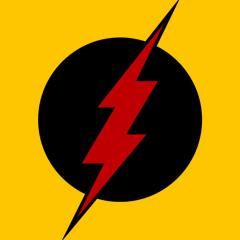
s1994
-
Posts
177 -
Joined
-
Last visited
Reputation Activity
-
 s1994 got a reaction from amam in GRE - does raw score or percentile matter more?
s1994 got a reaction from amam in GRE - does raw score or percentile matter more?
1. PoliticalOrder, Maybe you should avoid personal attacks.
2. Also, "the GRE quant score does not represent one's ability to succeed in a quantitative methods sequence".
Really? People who have spent 40 or 50 hours to study but still couldn't do HS algebra can master game theory, multilevel models, and Bayesian data analysis. I am convinced.
-
 s1994 reacted to psg1234 in Welcome to the 2015-2016 Cycle!
s1994 reacted to psg1234 in Welcome to the 2015-2016 Cycle!
Yeah. I just got an admission email from Colton. I am really excited, and yeah, again, can't thank you guys enough. I would have had no idea where to begin my application if not for this board. I am grateful to all of you!
-
 s1994 got a reaction from Tvent1986 in Welcome to the 2015-2016 Cycle!
s1994 got a reaction from Tvent1986 in Welcome to the 2015-2016 Cycle!
Schools that have MA programs (Duke, Chicago, Columbia, NYU) are waiting to send out rejections later because some rejections come with the Master offer. I won't be surprised if all NYU admit and WL decisions are out at this juncture, but an offer is still possible though unlikely
-
 s1994 got a reaction from fbeyza in Welcome to the 2015-2016 Cycle!
s1994 got a reaction from fbeyza in Welcome to the 2015-2016 Cycle!
Many people don't take classes after Year 2. So the tuition waiver usually ends after Year 2. However, if you get nothing (i.e. stipend, insurance) after Year 2, that means your study is not funded. Make sure with your department on the details because unfunded programs are a red flag to go to
-
 s1994 got a reaction from reasonablepie in Welcome to the 2015-2016 Cycle!
s1994 got a reaction from reasonablepie in Welcome to the 2015-2016 Cycle!
Cornell is an ivy; OSU is not -- just in case you want to get a job in communications department or outside of academia, going to Cornell makes more sense to me. Also, they are both top 20. People might care about the top 5/10 difference because top 5 are Chymps, but top 15/20 is rarely distinguishable. If funding and POIs are similar in both departments, I would vote for Cornell for sure
-
 s1994 got a reaction from PoliPixie in Welcome to the 2015-2016 Cycle!
s1994 got a reaction from PoliPixie in Welcome to the 2015-2016 Cycle!
Cornell is an ivy; OSU is not -- just in case you want to get a job in communications department or outside of academia, going to Cornell makes more sense to me. Also, they are both top 20. People might care about the top 5/10 difference because top 5 are Chymps, but top 15/20 is rarely distinguishable. If funding and POIs are similar in both departments, I would vote for Cornell for sure
-
 s1994 got a reaction from Straussian Dogmatist in Welcome to the 2015-2016 Cycle!
s1994 got a reaction from Straussian Dogmatist in Welcome to the 2015-2016 Cycle!
I am comparative/methods. I am emailing the DGS at Cornell to remove me from the waitlist so that other people on the list can be considered first if there is extra space in the cohort. Good luck to everyone who is on the WL!
-
 s1994 got a reaction from kafcat in Welcome to the 2015-2016 Cycle!
s1994 got a reaction from kafcat in Welcome to the 2015-2016 Cycle!
I am comparative/methods. I am emailing the DGS at Cornell to remove me from the waitlist so that other people on the list can be considered first if there is extra space in the cohort. Good luck to everyone who is on the WL!
-
 s1994 got a reaction from Determinedandnervous in Welcome to the 2015-2016 Cycle!
s1994 got a reaction from Determinedandnervous in Welcome to the 2015-2016 Cycle!
Someone got an informal offer from Harvard. Congrats.
Also, can you tell us how did you get informed? Phone? Email? Did your POI tell you if all admitted students will also be notified in the next few days informally? Thanks
-
 s1994 got a reaction from HardPromises in Welcome to the 2015-2016 Cycle!
s1994 got a reaction from HardPromises in Welcome to the 2015-2016 Cycle!
My college is just locked down because of an armed escapee. Fun time.
I can only handle an offer right now, if Yale is releasing their decisions this week
-
 s1994 reacted to reasonablepie in Advice for Visiting Weekends
s1994 reacted to reasonablepie in Advice for Visiting Weekends
1) Don't worry too much about making a good impression! It's about you and your decision now, and schools will be putting in a lot of effort to make a good impression on you. Come September, no one will remember much of what you said/did/wore at visit weekend, so just focus on getting the information you want. I was really stressed about this and turns out it didn't matter in the least.
2) Think carefully in advance about what really matters to you in your decision; this will determine what you need to ask. It could be you mainly care about how you get along with people on a personal level, or about the kind of research students are doing at this department, or about the kinds of methods training you will get, or about the quality of life in that place, or any number of other things. All of these are valid concerns, and they will matter to different extents to different people. Make a list in advance, and focus on getting the information most important to you.
3) Make sure you talk to a good mix of people. Students in both lower and upper years, professors ranging from new APs to the most senior scholars, the admin people for practical stuff, etc. Don't put too much weight onto any particular opinion, instead look for patterns of things that keep coming up or a general impression you get.
4) Practical stuff: wear something one shade nicer than what you'd wear on a daily basis in this particular department (huge differences between schools, particularly East vs West coast), if you're hosted by a grad student be a good guest, get enough sleep because visits are exhausting, plan any practical transport things in advance so you don't have to stress about those (admin people can give you good advice on logistics things if needed, but keep in mind they're busy and you do have google).
5) Don't ignore your gut feeling! You're looking at 5-6 years at this place, whether you'll be happy there is really important. Go to as many as the social events as you have energy for, see if you vibe with the current students and other admits, because they'd be your friends. Get a feel for the department and campus more generally, and see if you feel at home there. We like to worry ourselves a lot about 'objective' measures and how grad school choice will impact our careers, but whether you will have a great or awful experience matters and that depends in large part on whether it feels right for you.
-
 s1994 got a reaction from fbeyza in Welcome to the 2015-2016 Cycle!
s1994 got a reaction from fbeyza in Welcome to the 2015-2016 Cycle!
To elaborate more, I want to say that schools usually release their results in two different ways
1) First, and the most common one, is to send out offers (and WL decisions almost simultaneously) at first. These emails tend to be formulaic, simply letting an applicant know that he is accepted. However, funding details are usually not sent until future emails. These schools will accept people from the WL only if 1) there are people turning down the offer, 2) the # of people declining the offers has been so high that they have to take people from WL to meet the incoming class size. In this sense, to get off from the WL is already hard, not to mention if the school will "save" people from the rejection pile. However, it is still possible for you to be "re-admitted" even though you were in the rejection pile in the first place if (1) none of the people on the WL end up with a good fit in the department's eyes, and (2) the department desperately needs people to meet the incoming class size for a variety of reasons. That's why they do not send out the rejections right away with all the offers and WL decisions. Thus, people can definitely treat silence as hope, but we have to be admonished that the chance of acceptance is really, really low. Schools that fit this model are Duke, Chicago... (Top 20 prestigious departments).
Some schools sent out the rejections only a few days later than the acceptances and WL decisions, because they know that even people turn down the offers, the department will still do fine with the incoming class size. Top-10s like Berkeley and Princeton fit this sub-model.
2) Second way is to send out formulaic rejections at first, so that they can spend time to individualize the offers and include detailed funding info in the letter. UCSD, Michigan (at least this year) fit this model.
Either way, we tend not to see a case when a school sends out a lot of offers on the same day, waits for a month, and sends out another batch of offers. None of the top departments has done notifications in this way, and nor will they. Something that people have done in the past might not necessarily lead to what they will do this year. But even though they change the chair, the expectations of how admissions process is done are still flowing around in the department -- culture and process are not changed that easily. Observing a pattern and using this pattern strategically, although might let you feel sad at first when you think "oh I got rejected by Princeton because I hear nothing from them", is actually doing you good by helping you treat "failure" (in a positive way) in a calm manner. This is the rule of the game that is called grad school admissions; this will also be the rule of the game when we are on the job market.
That's what I want to say. And to certain fellows -- feel free to downvote me as always. But this is what I truly think, and my thoughts will probably not be changed easily with more downvotes. To the people who agree with me -- Thank you. From the pattern you have observed re: past admissions, you can understand your situation more keenly, and if, I'm saying if, the current cycle does not work for you, you will be at a much better place when you apply next year. I am lucky as I got into a good department in my first cycle, but the waiting period is really difficult. Hope that everyone can succeed this year.
-
 s1994 got a reaction from Determinedandnervous in Welcome to the 2015-2016 Cycle!
s1994 got a reaction from Determinedandnervous in Welcome to the 2015-2016 Cycle!
Congrats to all UPenn admits!
-
 s1994 reacted to alphazeta in Advice for Visiting Weekends
s1994 reacted to alphazeta in Advice for Visiting Weekends
I would never even consider attending a department without formal training if you want to formal work. For several reasons:
1) If no game theory is offered in house, this means there's not going to be a formal community. There's a substantial quantitative community in essentially every PhD-granting political science department in the country. The same is not true for formal, and having a community is important.
2) There are very high transaction costs to learning game theory in an economics department. Unlike quantitative methods that are taught as stand-alone tools wherever they're offered, game theory is generally taught as part of a microeconomics sequence in economics departments. That means sitting through general equilibrium theory and irrelevant substantive content.
3) Formal theory is a theoretical tool, whose application is intimately connected to the nature of theoretical debates. This means learning it in the right context is really important.
To be clear, I'm really talking here about offering 1 or 2 formal courses. It's perfectly reasonable to expect to go to an econ department for some advanced coursework.
-
 s1994 reacted to puddle in Advice for Visiting Weekends
s1994 reacted to puddle in Advice for Visiting Weekends
This may sound small but here was the best thing I did on a visiting weekend:
I went to a lunchtime colloquium. I read the paper ahead of time, I paid attention during the talk, and at the appropriate time I asked a question. Turns out my question was a pretty good one because 2 of the profs I met with later on commented on it. One of those profs is now on my committee -- and our discussion about the paper/my question was the start of that very important academic relationship.
-
 s1994 got a reaction from candorew in Welcome to the 2015-2016 Cycle!
s1994 got a reaction from candorew in Welcome to the 2015-2016 Cycle!
To elaborate more, I want to say that schools usually release their results in two different ways
1) First, and the most common one, is to send out offers (and WL decisions almost simultaneously) at first. These emails tend to be formulaic, simply letting an applicant know that he is accepted. However, funding details are usually not sent until future emails. These schools will accept people from the WL only if 1) there are people turning down the offer, 2) the # of people declining the offers has been so high that they have to take people from WL to meet the incoming class size. In this sense, to get off from the WL is already hard, not to mention if the school will "save" people from the rejection pile. However, it is still possible for you to be "re-admitted" even though you were in the rejection pile in the first place if (1) none of the people on the WL end up with a good fit in the department's eyes, and (2) the department desperately needs people to meet the incoming class size for a variety of reasons. That's why they do not send out the rejections right away with all the offers and WL decisions. Thus, people can definitely treat silence as hope, but we have to be admonished that the chance of acceptance is really, really low. Schools that fit this model are Duke, Chicago... (Top 20 prestigious departments).
Some schools sent out the rejections only a few days later than the acceptances and WL decisions, because they know that even people turn down the offers, the department will still do fine with the incoming class size. Top-10s like Berkeley and Princeton fit this sub-model.
2) Second way is to send out formulaic rejections at first, so that they can spend time to individualize the offers and include detailed funding info in the letter. UCSD, Michigan (at least this year) fit this model.
Either way, we tend not to see a case when a school sends out a lot of offers on the same day, waits for a month, and sends out another batch of offers. None of the top departments has done notifications in this way, and nor will they. Something that people have done in the past might not necessarily lead to what they will do this year. But even though they change the chair, the expectations of how admissions process is done are still flowing around in the department -- culture and process are not changed that easily. Observing a pattern and using this pattern strategically, although might let you feel sad at first when you think "oh I got rejected by Princeton because I hear nothing from them", is actually doing you good by helping you treat "failure" (in a positive way) in a calm manner. This is the rule of the game that is called grad school admissions; this will also be the rule of the game when we are on the job market.
That's what I want to say. And to certain fellows -- feel free to downvote me as always. But this is what I truly think, and my thoughts will probably not be changed easily with more downvotes. To the people who agree with me -- Thank you. From the pattern you have observed re: past admissions, you can understand your situation more keenly, and if, I'm saying if, the current cycle does not work for you, you will be at a much better place when you apply next year. I am lucky as I got into a good department in my first cycle, but the waiting period is really difficult. Hope that everyone can succeed this year.
-
 s1994 got a reaction from IndEnth in Welcome to the 2015-2016 Cycle!
s1994 got a reaction from IndEnth in Welcome to the 2015-2016 Cycle!
To elaborate more, I want to say that schools usually release their results in two different ways
1) First, and the most common one, is to send out offers (and WL decisions almost simultaneously) at first. These emails tend to be formulaic, simply letting an applicant know that he is accepted. However, funding details are usually not sent until future emails. These schools will accept people from the WL only if 1) there are people turning down the offer, 2) the # of people declining the offers has been so high that they have to take people from WL to meet the incoming class size. In this sense, to get off from the WL is already hard, not to mention if the school will "save" people from the rejection pile. However, it is still possible for you to be "re-admitted" even though you were in the rejection pile in the first place if (1) none of the people on the WL end up with a good fit in the department's eyes, and (2) the department desperately needs people to meet the incoming class size for a variety of reasons. That's why they do not send out the rejections right away with all the offers and WL decisions. Thus, people can definitely treat silence as hope, but we have to be admonished that the chance of acceptance is really, really low. Schools that fit this model are Duke, Chicago... (Top 20 prestigious departments).
Some schools sent out the rejections only a few days later than the acceptances and WL decisions, because they know that even people turn down the offers, the department will still do fine with the incoming class size. Top-10s like Berkeley and Princeton fit this sub-model.
2) Second way is to send out formulaic rejections at first, so that they can spend time to individualize the offers and include detailed funding info in the letter. UCSD, Michigan (at least this year) fit this model.
Either way, we tend not to see a case when a school sends out a lot of offers on the same day, waits for a month, and sends out another batch of offers. None of the top departments has done notifications in this way, and nor will they. Something that people have done in the past might not necessarily lead to what they will do this year. But even though they change the chair, the expectations of how admissions process is done are still flowing around in the department -- culture and process are not changed that easily. Observing a pattern and using this pattern strategically, although might let you feel sad at first when you think "oh I got rejected by Princeton because I hear nothing from them", is actually doing you good by helping you treat "failure" (in a positive way) in a calm manner. This is the rule of the game that is called grad school admissions; this will also be the rule of the game when we are on the job market.
That's what I want to say. And to certain fellows -- feel free to downvote me as always. But this is what I truly think, and my thoughts will probably not be changed easily with more downvotes. To the people who agree with me -- Thank you. From the pattern you have observed re: past admissions, you can understand your situation more keenly, and if, I'm saying if, the current cycle does not work for you, you will be at a much better place when you apply next year. I am lucky as I got into a good department in my first cycle, but the waiting period is really difficult. Hope that everyone can succeed this year.
-
 s1994 got a reaction from MauBicara in Welcome to the 2015-2016 Cycle!
s1994 got a reaction from MauBicara in Welcome to the 2015-2016 Cycle!
With regards to the Stanford acceptance, it might not be a troll (or it might be)
1) On "that" website (I'm not going to name it, but if you know, you know it), someone is asking to compare Princeton and Stanford. So the person might actually get the unofficial offer from his POI
2) It can also just be a grad student trolling, which is not uncommon on "that" website
-
 s1994 reacted to kafcat in Welcome to the 2015-2016 Cycle!
s1994 reacted to kafcat in Welcome to the 2015-2016 Cycle!
This is the most realistic comment I've read in a while and thanks for being so down to earth. To be honest, I didn't have the best test scores (I'm surprised I even got into a top 10 program), and I think you nailed it with " treating failure in a calm manner because this is just the beginning of the game. Throughout the PhD program, we will face rejection countless of times for grants and the like despite our sleepless nights or hard work. In the end, I think I learned that I need to do things for "myself" and whatever the outcome is...it is for the best. It is a lesson learned, even if it cost me an ivy league offer. I am still slightly sad about Columbia and Princeton but I'm sure I'll be fine. The weird thing is that there appears to be some people clearly rejected from Princeton but some of us haven't gotten even that...which makes me think "oh, maybe they will give me a chance!" either way, I'm moving on. I suppose I really just wanted a change of scenery (been in so cal all my life) but UCLA's program is top notch and I should be extremely grateful since many people would kill to be in the position I am. These past few months have been insane, and the worst part already happened. Anyways, sleep well everyone, let's hope that the rest of you get your dream school's admission offer (if you haven't already) !
-
 s1994 got a reaction from VMcJ in Welcome to the 2015-2016 Cycle!
s1994 got a reaction from VMcJ in Welcome to the 2015-2016 Cycle!
To elaborate more, I want to say that schools usually release their results in two different ways
1) First, and the most common one, is to send out offers (and WL decisions almost simultaneously) at first. These emails tend to be formulaic, simply letting an applicant know that he is accepted. However, funding details are usually not sent until future emails. These schools will accept people from the WL only if 1) there are people turning down the offer, 2) the # of people declining the offers has been so high that they have to take people from WL to meet the incoming class size. In this sense, to get off from the WL is already hard, not to mention if the school will "save" people from the rejection pile. However, it is still possible for you to be "re-admitted" even though you were in the rejection pile in the first place if (1) none of the people on the WL end up with a good fit in the department's eyes, and (2) the department desperately needs people to meet the incoming class size for a variety of reasons. That's why they do not send out the rejections right away with all the offers and WL decisions. Thus, people can definitely treat silence as hope, but we have to be admonished that the chance of acceptance is really, really low. Schools that fit this model are Duke, Chicago... (Top 20 prestigious departments).
Some schools sent out the rejections only a few days later than the acceptances and WL decisions, because they know that even people turn down the offers, the department will still do fine with the incoming class size. Top-10s like Berkeley and Princeton fit this sub-model.
2) Second way is to send out formulaic rejections at first, so that they can spend time to individualize the offers and include detailed funding info in the letter. UCSD, Michigan (at least this year) fit this model.
Either way, we tend not to see a case when a school sends out a lot of offers on the same day, waits for a month, and sends out another batch of offers. None of the top departments has done notifications in this way, and nor will they. Something that people have done in the past might not necessarily lead to what they will do this year. But even though they change the chair, the expectations of how admissions process is done are still flowing around in the department -- culture and process are not changed that easily. Observing a pattern and using this pattern strategically, although might let you feel sad at first when you think "oh I got rejected by Princeton because I hear nothing from them", is actually doing you good by helping you treat "failure" (in a positive way) in a calm manner. This is the rule of the game that is called grad school admissions; this will also be the rule of the game when we are on the job market.
That's what I want to say. And to certain fellows -- feel free to downvote me as always. But this is what I truly think, and my thoughts will probably not be changed easily with more downvotes. To the people who agree with me -- Thank you. From the pattern you have observed re: past admissions, you can understand your situation more keenly, and if, I'm saying if, the current cycle does not work for you, you will be at a much better place when you apply next year. I am lucky as I got into a good department in my first cycle, but the waiting period is really difficult. Hope that everyone can succeed this year.
-
 s1994 got a reaction from kafcat in Welcome to the 2015-2016 Cycle!
s1994 got a reaction from kafcat in Welcome to the 2015-2016 Cycle!
To elaborate more, I want to say that schools usually release their results in two different ways
1) First, and the most common one, is to send out offers (and WL decisions almost simultaneously) at first. These emails tend to be formulaic, simply letting an applicant know that he is accepted. However, funding details are usually not sent until future emails. These schools will accept people from the WL only if 1) there are people turning down the offer, 2) the # of people declining the offers has been so high that they have to take people from WL to meet the incoming class size. In this sense, to get off from the WL is already hard, not to mention if the school will "save" people from the rejection pile. However, it is still possible for you to be "re-admitted" even though you were in the rejection pile in the first place if (1) none of the people on the WL end up with a good fit in the department's eyes, and (2) the department desperately needs people to meet the incoming class size for a variety of reasons. That's why they do not send out the rejections right away with all the offers and WL decisions. Thus, people can definitely treat silence as hope, but we have to be admonished that the chance of acceptance is really, really low. Schools that fit this model are Duke, Chicago... (Top 20 prestigious departments).
Some schools sent out the rejections only a few days later than the acceptances and WL decisions, because they know that even people turn down the offers, the department will still do fine with the incoming class size. Top-10s like Berkeley and Princeton fit this sub-model.
2) Second way is to send out formulaic rejections at first, so that they can spend time to individualize the offers and include detailed funding info in the letter. UCSD, Michigan (at least this year) fit this model.
Either way, we tend not to see a case when a school sends out a lot of offers on the same day, waits for a month, and sends out another batch of offers. None of the top departments has done notifications in this way, and nor will they. Something that people have done in the past might not necessarily lead to what they will do this year. But even though they change the chair, the expectations of how admissions process is done are still flowing around in the department -- culture and process are not changed that easily. Observing a pattern and using this pattern strategically, although might let you feel sad at first when you think "oh I got rejected by Princeton because I hear nothing from them", is actually doing you good by helping you treat "failure" (in a positive way) in a calm manner. This is the rule of the game that is called grad school admissions; this will also be the rule of the game when we are on the job market.
That's what I want to say. And to certain fellows -- feel free to downvote me as always. But this is what I truly think, and my thoughts will probably not be changed easily with more downvotes. To the people who agree with me -- Thank you. From the pattern you have observed re: past admissions, you can understand your situation more keenly, and if, I'm saying if, the current cycle does not work for you, you will be at a much better place when you apply next year. I am lucky as I got into a good department in my first cycle, but the waiting period is really difficult. Hope that everyone can succeed this year.
-
 s1994 got a reaction from kafcat in Welcome to the 2015-2016 Cycle!
s1994 got a reaction from kafcat in Welcome to the 2015-2016 Cycle!
My understanding is that if you don't hear anything from Chicago, Duke, Columbia, or Princeton on the same day when other people do, then that means you are rejected. Even the people on the waitlists are also informed with the people who got the offers. Many people on this forum might disagree with me a lot on this point, but not hoping too much from a "silent" decision is probably the best thing that people can do (so goes for the job market in five years -- silence means rejection, with really few exceptions), because you won't be too disappointed when you receive the rejection in a month, and if there is a miracle that they get you accepted instead of those on the waitlist -- you will be surprised and happy. You have nothing to lose by treating dead silence as a rejection.
-
 s1994 got a reaction from panama in Welcome to the 2015-2016 Cycle!
s1994 got a reaction from panama in Welcome to the 2015-2016 Cycle!
It was really early last year, but also pretty late 2 years ago. The date is really unpredictable for top departments like Stanford because we do not know how many applicants applied to them (and the # tends to vary a lot year by year). But I would say they will definitely release the result by the end of next week (probably similar time with Yale)!
-
 s1994 got a reaction from Determinedandnervous in Welcome to the 2015-2016 Cycle!
s1994 got a reaction from Determinedandnervous in Welcome to the 2015-2016 Cycle!
I got in Michigan!
-
 s1994 got a reaction from Eobard Thawne in Welcome to the 2015-2016 Cycle!
s1994 got a reaction from Eobard Thawne in Welcome to the 2015-2016 Cycle!
Yes.
University Of Michigan, Ann Arbor Political Science, PhD (F15) Accepted via E-mail on 28 Feb 2015 ♦ A 28 Feb 2015 report spam Accepted off the waitlist for Methods subfield. So excited!







